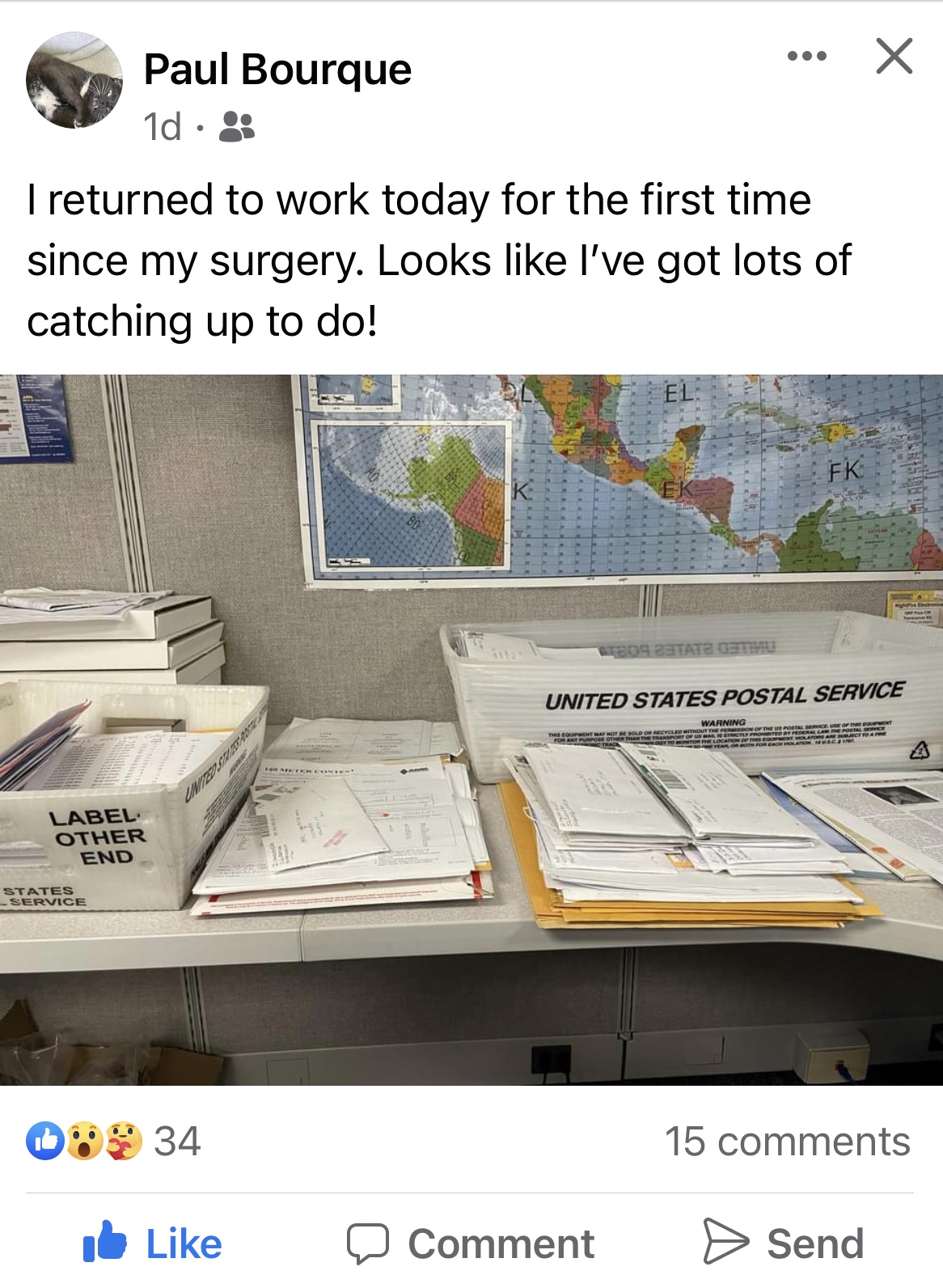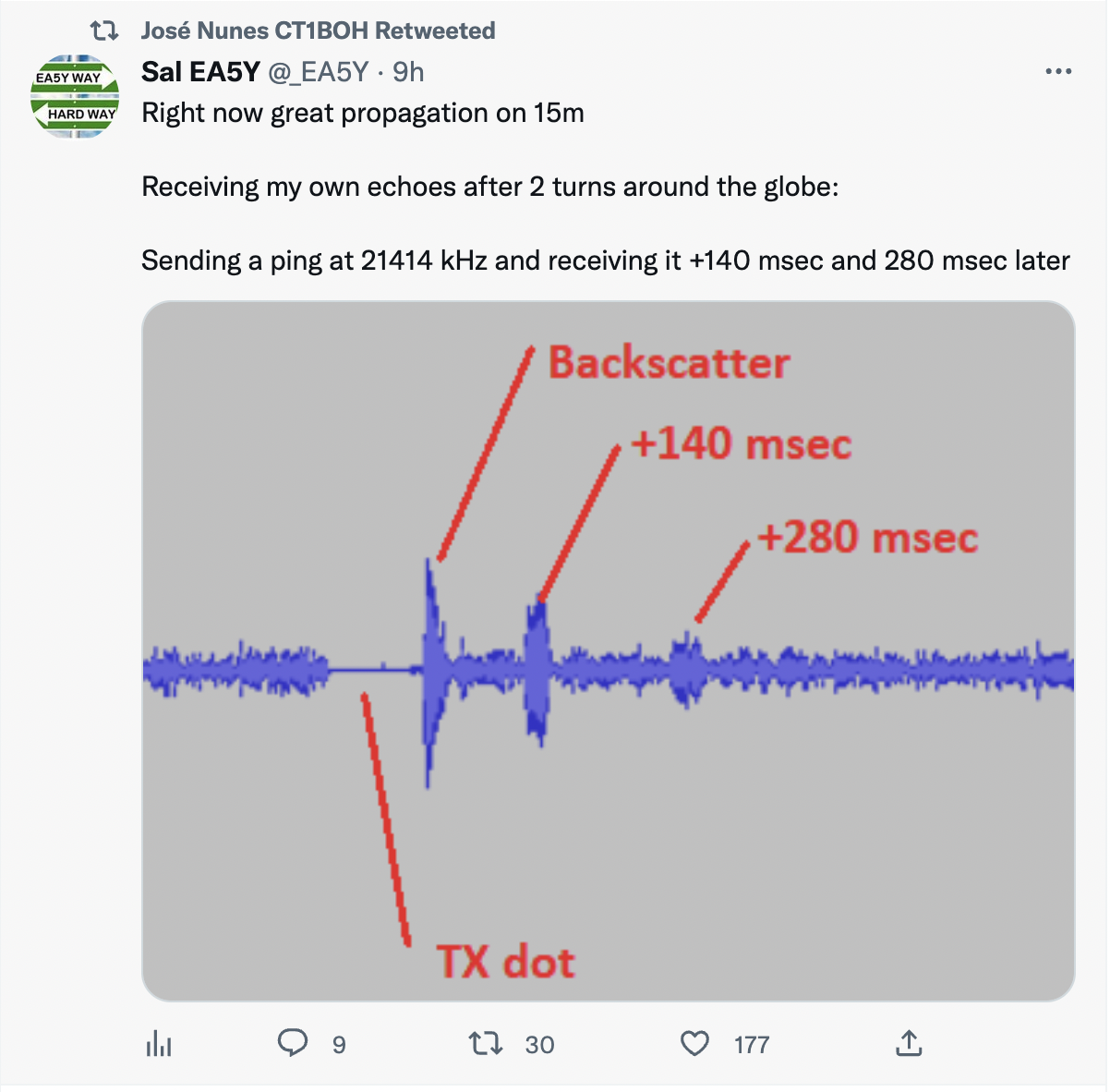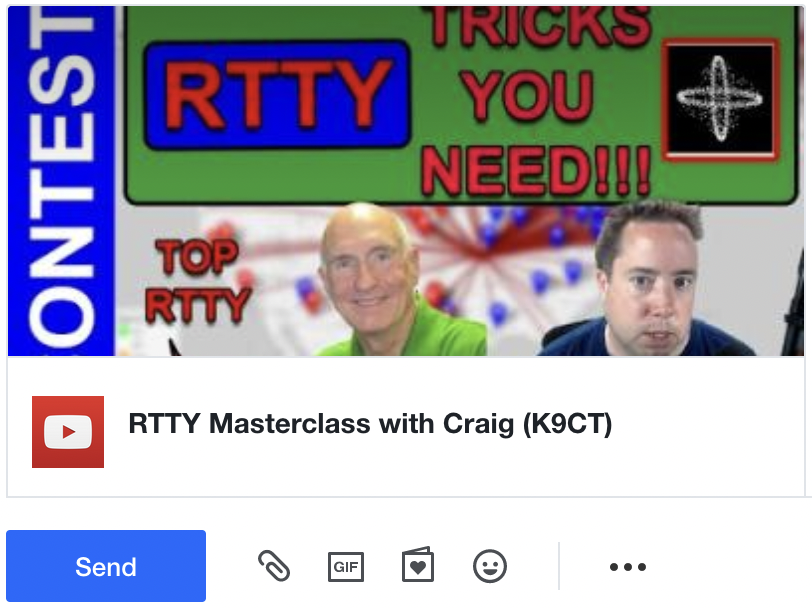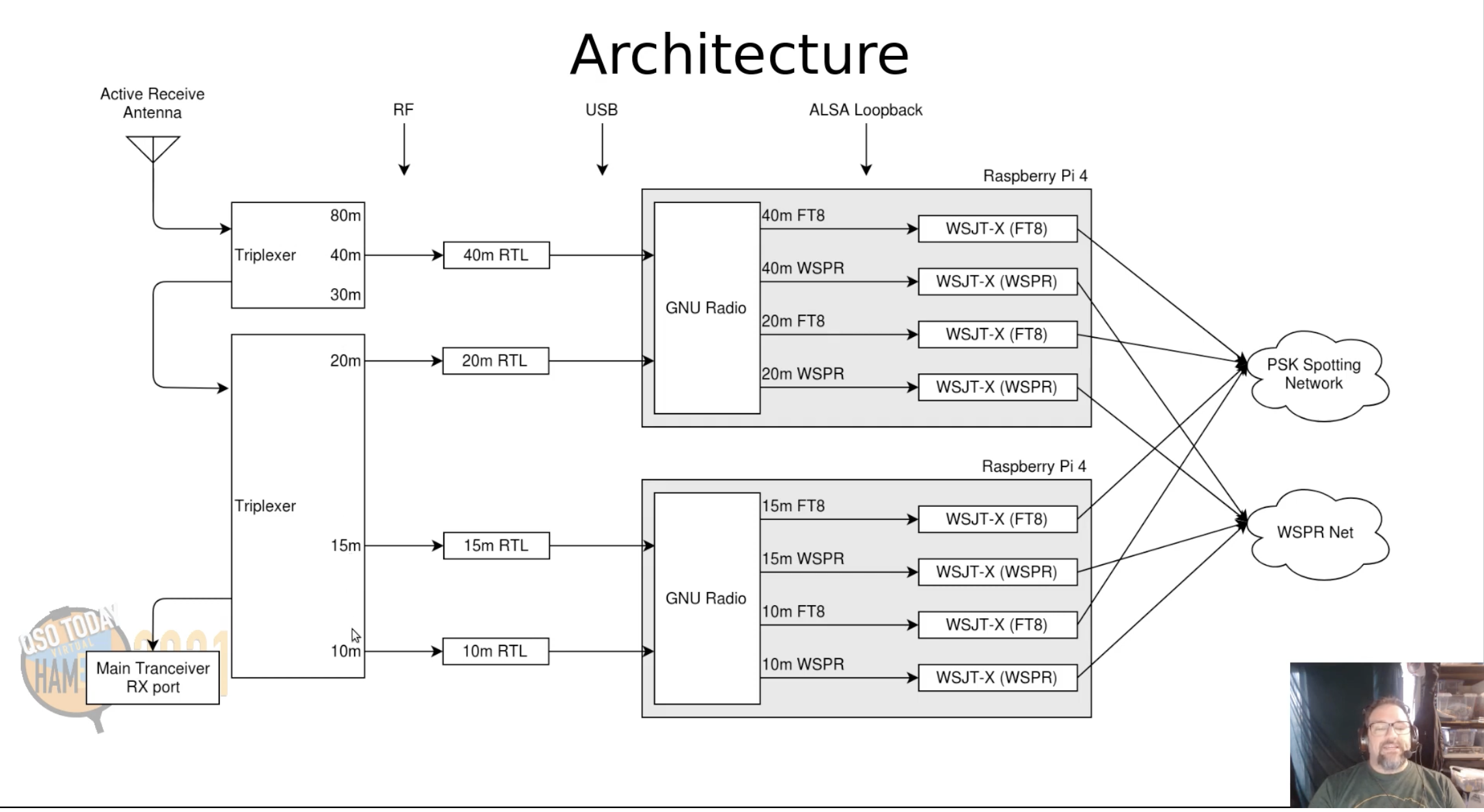 January 4, 2023 Editor: Paul Bourque, N1SFE | ||||
In this Issue:
Upcoming Contests - Things to Do The ARRL RTTY Roundup starts on January 7! It is now a RTTY-only contest. The vast majority of stations will be using 45/45.45 baud, although 75 baud is permissible and could support higher running rates if more stations used it. Low power is 100 W. Don't forget to plan and take off-time if you're a single operator -- see the RTTY Roundup web page for more information on the off-time rules. During the contest, take some pictures, write down the details of any interesting contest anecdotes, and send them to Jeff Stai, WK6I, for possible inclusion in the contest results write-up. ARRL Kids Day is also on January 7. This is more of an operating event than a contest. The exchange is the operator's name, age, location, and favorite color. The mode is assumed to be phone. Fun is encouraged, and the rate is secondary in this one. The North American QSO Party - CW is on January 14. This contest is low power only, 12 hours long, and has categories for single and multiple operators. Multipliers are per band, so working the same station on multiple bands is a good thing. Week one of the 2023 CWops CWT series starts January 4. According to Rich Ferch, VE3KI, "CWTs are every Wednesday at 1300z and 1900z, and every Thursday (UTC) at 0300z and 0700z." Contest Summary See the "Contests" section below for complete contest information. January 5 - January 18, 2023 January 5 January 6 January 7
January 8 January 9
January 10 January 11
January 12 January 13 January 14 January 15 January 16 January 17 January 18
News, Press Releases, and Special Interest Verify your RTTY configuration in preparation for the ARRL RTTY Roundup by participating in the Northern California Contest Club's Thursday RTTY NS. Also, look for stations practicing at 2200 - 2230 UTC, Friday, January 6, and 0200 - 0230 Saturday, January 7 (Friday evening in the US). Use the same bands and frequencies that you would in the real contest. The NRAU-Baltic contests on January 15 foster a competition among amateurs in the Nordic and Baltic countries. US stations calling one of these stations from ES, JW, JX, LA, LY, OH, OH0, OJ0, OX, OY, OZ, SM, TF, and YL, may notice that these stations have a preference of working other Nordic-Baltic stations. This is because the contest rules do not score contacts from non-Nordic-Baltic stations, unless they submit logs, or if those stations show up in at least 10 other Nordic-Baltic logs. QRP Labs' popular QDX digital transceiver is now available in two models -- one that covers 80, 60, 40, 30, and 20 meters, and a higher-frequency version that covers 20, 17, 15, 12, 11, and 10 meters. These QRP rigs have an embedded SDR, 24-bit 48 kSPS samples-per-second USB sound card, CAT control, synthesized VFO with TCXO reference. The QDX can transmit digital modes that use a single tone FSK signal for transmission (e.g., FT4, FT8, RTTY, Olivia). Try something a little different for the NAQP CW on January 14, like participating as a single operator but also operating as part of a team. Seven days before the contest, register a team with up to four other Single Operator/Single Operator Assisted stations. During the contest, all team members make as big of a score as possible. After the contest, all team members submit their logs separately. The pre-registration step allows the contest sponsors to know how to score the teams together. You can even choose a team name. See 2022's results for ideas. If 45 baud RTTY is too slow for you, give the BARTG SPRINT 75 contest in April a try. It is a 4-hour contest. Word to the Wise QLF Idiomatic, non-official Q-signal indicating that the sending may be erratic or error-prone, as if one were sending CW using their left foot instead of their hand. The interrogative "QLF?" would be sent by one station to another, asking, "Are you sending with your left foot?". This implies that their sending style is difficult to understand. Sights and Sounds
Results and Records Dean Wood, N6DE, announces: "The 2022 California QSO Party (CQP) Results are now available on the CQP website. See the wine winners, award winners, many top 10 boxes, club competition results, new records, multiplier sweeps, rarest multipliers, statistics on the number of logs received, hour-by-hour QSO graphs, and station soapboxes. Also, watch the CQP 2022 Video on YouTube. Thanks to W6SX, N6NUL, and WE6Z for the audio recordings, and to Tom, NS6T, and John, K6MM, for all their incredible work behind the scenes." The final results for the 2022 FT Roundup are now available on the contest website. For those who participated, certificates are also available. The contest sponsors are proposing format and rule changes for this contest. See the results for details and weigh in! Operating Tip Not All Packet Clusters Provide Skimmer Spots If you're operating assisted and want to get automated CW or RTTY spots from the Reverse Beacon Network (RBN), make sure the packet cluster you're connecting to provides those spots and you have them turned on. See the information page on the RBN website. You can also check other websites, such as the one provided by William Feidt, NG3K. Maybe the best option is to call CQ and watch the RBN to note that you're spotted, and to verify that your packet cluster provider will produce the spot! Technical Topics and Discussion If you have an outboard SDR and you want to use it in conjunction with your transceiver, perhaps for a spectrum display or panadapter, RemoteQTH.com has an RX Audite SDR Splitter/Switch that could help. It can isolate the SDR from the primary antenna during TX, or even switch it to an alternate "in-band" antenna.
Mark Smith, N6MTS, describes how he used GNU Radio to decode WSPR and WSJT-X signals on a number of bands simultaneously in this YouTube video. The presentation in the video was originally given at the March 2021 QSO Today. Smith uses multiple SDRs (e.g., RTL-SDRs) for his hardware, GNU Radio to turn I/Q signals into SSB, and virtual audio cables feeding multiple instances of WSJT-X on Raspberry Pi computers to generate a stream of spots. If you'd like to experiment with RTTY demodulators inside of GNU Radio, here's a GitHub repository for gr-RTTY that might be a good start. Your next cellular phone will probably have the ability to send emergency SMS messages through a satellite. New satellite constellations will enable direct-to-satellite connections from mainstream cellular phones, offering more communication choices in the event of an emergency. Many modern transceivers provide a USB interface for use with a computer. With one cable, it's easy to get audio in and out of the transceiver and have CAT control. Generally, older equipment lacking a USB interface requires a cable for audio-in, another for audio-out, and a serial cable. Sometimes a separate PTT cable is necessary. There's the potential need for an external sound card, serial interface, level converters...it's a lot. Here's an open-source project for an All-In-One-Cable (AIOC), which is configured specifically for a Baofeng UV-5R. Because it provides a sound card interface and a serial port, it could be adapted for other radios, or for general purpose. The project also demonstrates another aspect of modern prototyping - the board house used for the printed circuit board can also source and solder on the parts, delivering complete designs ready for testing and programming. Conversation Bob and Al's Excellent DX and Contest Adventures Though they returned in early December from a trip to American Samoa where they operated as K8H, Bob Norin, W7YAQ, and Al Rovner, K7AR, are planning another trip to Vanuatu to operate as YJ0A in February. During their trip, they plan on operating in the ARRL International DX CW Contest. I asked them both how they prepared and what their considerations were for operating contests DXpedition-style. Here are their responses: Bob, W7YAQ: I'm a believer in lightweight DXpeditions. If it doesn't fit in checked or carry-on baggage, it doesn't go. From the Pacific, an ideal QTH would be close to the water on the north coast of an island. The ideal is not always possible (as with K8H, [we were] on the south coast with mountains to the north), but we go anyway! As you know, in spite of the best planning there will always be surprises. Missed flights, high local noise, equipment failures, illness, etc. I'm also a believer in self-funding, easier to do for a lightweight operation. Thus, I feel no real performance obligations or pressures. Participating in a DXpedition is a great adventure. At age 82, I'm grateful I can still participate and hope to do so for a few more years. I think this philosophy is independent of whether or not operating in a contest is planned. We plan trips around major contests, simply because we enjoy contesting. Our February YJ0A trip is no different, focused around the ARRL DX CW contest. But looking at the calendar, I just noticed that the CQ WW RTTY WPX occurs the first weekend that we're in Vanuatu. Maybe we can fit in both! Al, K7AR: I have been on enough Pacific expeditions to agree with Bob's comments. Setting up on the north end of an island, as close to the water as possible, really works well, even with a simple vertical antenna. I don't think there's anything specific we do to prepare for the contest. Just pick the best location as described above and start contesting. It helps when everybody needs you for a new multiplier. I didn't realize that we would also have the RTTY WPX contest to deal with. I better review my setup and make sure RTTY is working. If I remember, I need an additional serial port to read the frequency from the K3. Safe travels Bob and Al! Remember, Paul, N1SFE, is back as Contest Update Editor, starting with the next issue! Maybe I'll work you in this weekend's ARRL RTTY Roundup from the multi-op K7RU? That's all for this time. Remember to send contesting-related stories, book reviews, tips, techniques, press releases, errata, schematics, club information, pictures, stories, blog links, and predictions to contest-update@arrl.org. 73, Brian, N9ADG Contests January 5 - January 18, 2023 An expanded, downloadable version of QST's Contest Corral is available as a PDF. Check the sponsors' website for information on operating time restrictions and other instructions. HF CONTESTS Walk for the Bacon QRP Contest , Jan 5, 0000z to Jan 6, 0300z; CW; Bands: 40; Maximum 13 wpm, RST + (state/province/country) + Name + (Member No./power); Logs due: Jan 12. Mini-Test 40 , Jan 11, 1700z to Jan 11, 1759z; CW; Bands: 40; RST + Serial No.; Logs due: Jan 13. VHF+ CONTESTS
Log Due Dates January 5 - January 18, 2023 January 5 January 6 January 7 January 8 January 9 January 10 January 11 January 12
January 13 January 14 January 15
January 16 January 18 ARRL Information Click here to advertise in this newsletter, space subject to availability. Your One-Stop Resource for Amateur Radio News and Information ARRL membership includes a choice of one print magazine: QST, the monthly membership journal, or On the Air, ARRL's new bimonthly publication for beginner and intermediate hams. All ARRL members can access all four ARRL magazines - QST, On the Air, NCJ, and QEX - digitally. Subscribe to NCJ - the National Contest Journal. Published bimonthly, it features articles by top contesters, letters, hints, statistics, scores, NA Sprint, and QSO Parties. Subscribe to QEX - A Forum for Communications Experimenters. Published bimonthly, it features technical articles, construction projects, columns, and other items of interest to radio amateurs and communications professionals. Free of charge to ARRL members: Subscribe to The ARRL Letter (weekly digest of news and information), the ARES Letter (monthly public service and emergency communications news), Division and Section news, and much more! ARRL offers a wide array of products to enhance your enjoyment of Amateur Radio. Visit the site often for new publications, specials, and sales. Donate to the fund of your choice - support programs not funded by member dues! Reprint permission can be obtained by emailing permission@arrl.org with a description of the material and the reprint publication. Acknowledgements ARRL Contest Update wishes to acknowledge information from WA7BNM's Contest Calendar. | ||||










